The first National Academic Conference on Intelligent Construction (NACIC), hosted by Tongji University and organized jointly by China Civil Engineering Society (CCES), the China State Construction Engineering Corporation (CSCEC) and Tongji University, was held in Shanghai on December 17 with the theme of Digital Twin and Intelligent Construction. More than 400 scholars and experts from universities, colleges, and enterprises in intelligent construction attended the conference to share their latest research achievements and engineering applications, and explore the future development trend and path of intelligent construction.
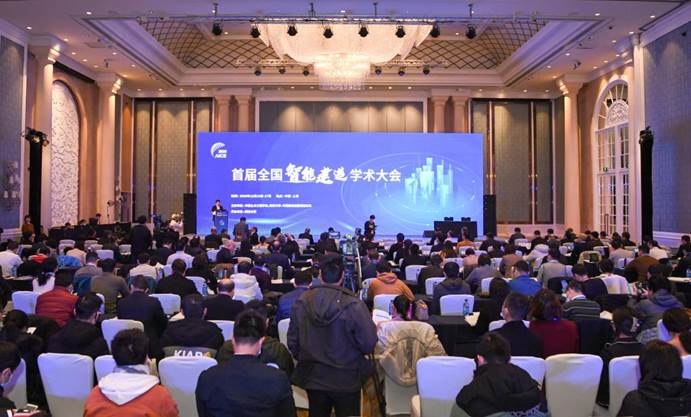
NACIC held on December 17, 2020
Present at the conference were: PLA Army Engineering University Academician WANG Jingquan; Shanghai Research Institute for Intelligent Autonomous Systems Academician HE Jifeng; NACIC Committee Director, CSCEC Chief Expert, and Tongji University Academician XIAO Xuwen; Huazhong University of Science and Technology Academician DING Lieyun; Tongji University Vice President and Academician WU Zhiqiang; University of Science and Technology Beijing Academician YUE Qingrui; China Communications Construction Company Ltd. Academician ZHANG Xigang; Tongji University Academician LV Xilin; CCES’s Secretary-General LI Mingan; Tongji University Vice President GU Xianglin; and the CSCEC’s Department of Science and Technology and Design Deputy General Manager SONG Zhongnan.
According to LI Ming’an,since the reform and opening-up, China’s infrastructure construction has developed rapidly, its construction capacity has been enhanced, and its industrial scale has been expanded. However, the development of engineering construction has also brought about environmental pollution, a waste of resources, and low efficiency. The intelligent construction discipline, formed by the integration of civil engineering and the new generation of information technology that are represented by the Internet of Things (IoT), big data, cloud computing, and artificial intelligence (AI), will not only accelerate the improvement of the high-tech degree of traditional disciplines, but also give birth to new technologies, products, industrials, and models, supporting China to move forward to a robust engineering construction country. Workers in the Civil Engineering Science and Technology field should aim for the trend of high-quality civil engineering development, focus on scientific issues, core algorithms, and key technologies of intelligent construction, and make proposals to promote the intelligent construction industry’s rapid growth.
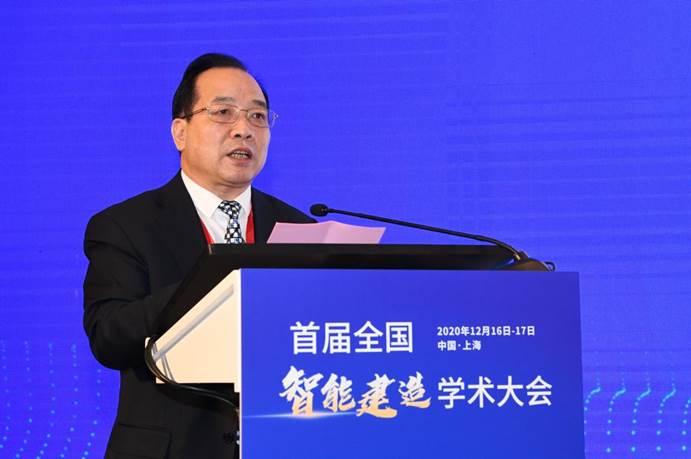
CCES’s Secretary-General LI Mingan
Vice President GU Xianglin noted that the Civil Engineering discipline of Tongji University has always been aligned with the frontier of civil engineering in the country with the layout of key frontier directions, such as: intelligent construction; multi-hazard disaster and resilience city; engineering structural performance evolution and control; and deep-sea space science and engineering to support a new round of leapfrog development of the discipline. In 2018, Tongji University took the lead by establishing an intelligent construction major in universities and colleges across the country. Over the past two years, Tongji’s College of Civil Engineering has put forward a Tongji proposal of Intelligent Construction Discipline and its Talent Cultivation Mode. It is hoped that academicians and experts will put forward valuable opinions and suggestions on developing Tongji’s Civil Engineering discipline and will promote jointly the leapfrog development of China’s intelligent construction industry through academic exchanges.
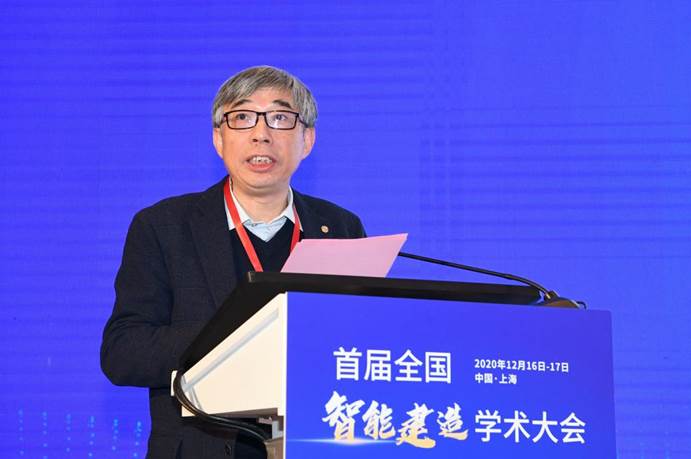
Tongji University Vice President GU Xianglin
Academician XIAO Xuwen said the traditionally extensive construction and development modes should be stopped. There is an urgent need to speed up the digital transformation and intelligent upgrading, and promote the engineering construction mode and paradigm transformation. The majority of personnel in Civil Engineering Science and Technology should aim towards the frontier of intelligent construction science and technology, adhere to the unities: of original basic research and the construction of new industrial systems; breaking through the “bottleneck” key technology and penetrating the barrier of institutional mechanisms; and realizing the dream of a powerful country in intelligent construction and meeting the needs of the people’s high-quality life; and to better support the needs of national socio-economic development in the new era.

Tongji University Academician XIAO Xuwen
In the report session, five academicians delivered their speeches one after another. Academician WU Zhiqiang, under the title of Intelligent Construction, Intelligent Planning, and Intelligent City, looked forward to the future application scenarios of intelligent technology in new urbanization, urban and rural planning decision-making, and intelligent urban governance by sharing relevant works on intelligent construction, intelligent planning, and intelligent city.
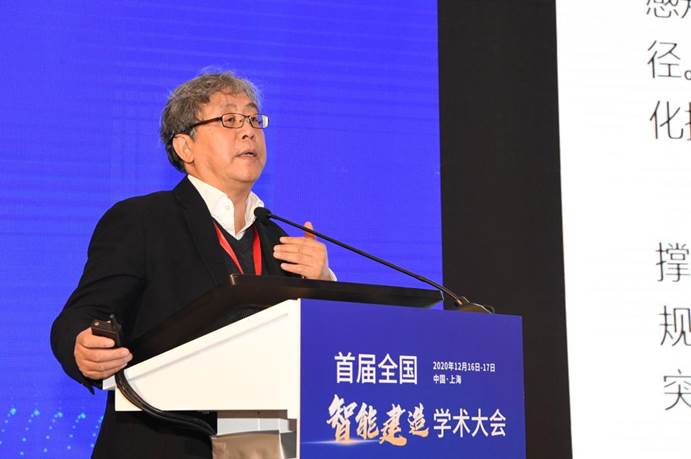
Tongji University Academician WU Zhiqiang
Under the title of: Engineering Diagnosis and Intelligent Operation and Maintenance, Academician YUE Qingrui elaborated the importance of implementing engineering diagnosis and intelligent operation and maintenance for construction, infrastructure, and related initiatives, starting with understanding the whole life cycle of construction and infrastructure.
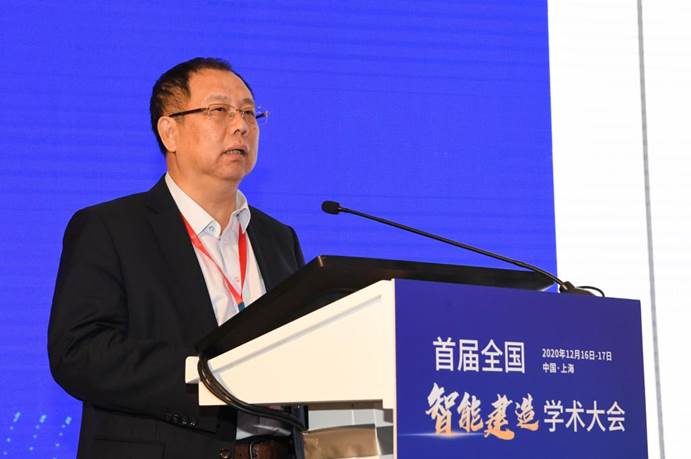
University of Science and Technology Beijing Academician YUE Qingrui
Academician XIAO Xuwen gave his report, titled: Intelligent Construction for Practical Results. In his report, he interpreted the basic concept and meaning of intelligent construction, analyzed the construction industry’s current situation, and put forward the critical problems of why and how to do intelligent construction with the direction and ideas of the future development of intelligent construction.
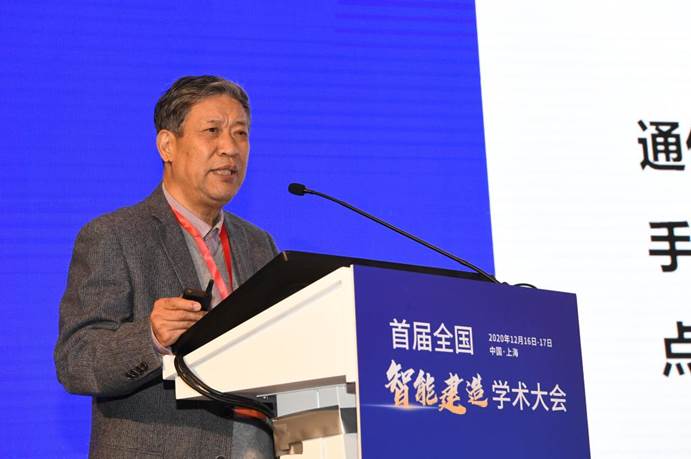
Tongji University Academician XIAO Xuwen
In his speech, titled: Trusted Artificial Intelligence and Intelligent Construction, Academician HE Jifeng expounded the necessity and application fields to apply trusted artificial intelligence to intelligent construction, and proposed using trusted countermeasures of artificial intelligence technology.

Shanghai Research Institute for Intelligent Autonomous Systems Academician HE Jifeng
Under the title of: Intelligent Construction Technology Development and Professional Talent Cultivation, Academician DING Lieyun added detail to the intelligent construction’s key scientific and technological issues while pointing out the critical problems of innovative talent cultivation in intelligent construction combined with the requirements of intelligent construction on talent quality.
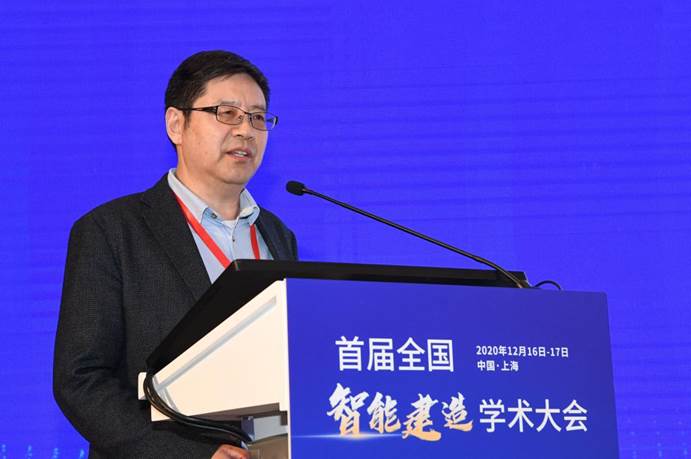
Huazhong University of Science and Technology Academician DING Lieyun
With reports beginning simultaneously at 5 sub-venues that afternoon, 35 experts and scholars from universities and enterprises gave keynote speeches on five topics: Brain-like Computing and Intelligent Design; Human-machine Collaboration and Intelligent Equipment; Multi-dimensional BIM and Intelligent Construction; IoT Sensing and Intelligent Operation and Maintenance; and Heterogeneous Decision-making and Intelligent Disaster Prevention. Thematic dialogues with the audience at each sub-venue were also held, to include: interpreting intelligent construction; new infrastructure; and industrial trends; sharing intelligent construction core algorithms and technological innovation; showing industry digitalization and intelligent demonstration applications; and exploring the future development trend of intelligent construction.
Experts at the conference agreed that although China has built world-renowned super high-rise buildings, super-large span bridges, and super-deep and long tunnels in the past four decades, the construction industry has not yet been freed from the labor-intensive industrial pattern. China’s construction industry is large, but not strong, and there is still a large gap when compared with the requirements of high-quality development. To this end, it is necessary to: a) integrate strategic emerging industries such as 3D printing, robotics, and AI with the construction industry; b) promote the industrialization, digitalization, and intelligent upgrading of construction from intelligent planning and design, equipment construction, disaster prevention, operation, and maintenance; and c) speed up the transformation of the construction mode and paradigm. This academic conference concentrated more specifically on the scientific problems, core algorithms, and key technologies of intelligent construction, which is of great significance in promoting intelligent construction development.
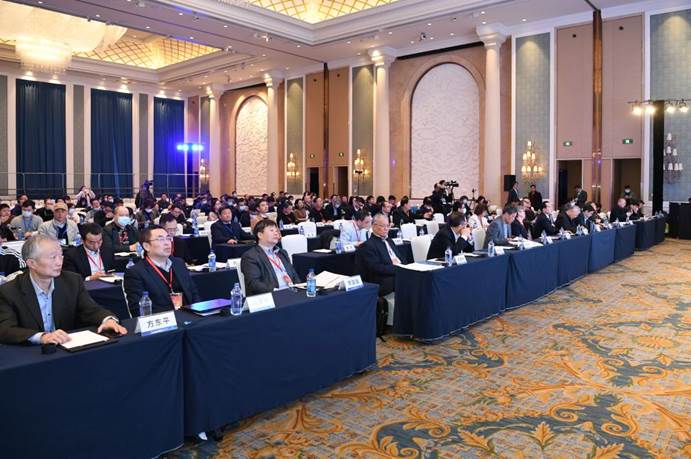
Audience at the conference
All the reports were broadcast live on streaming platforms, with more than 30,000 online viewers.
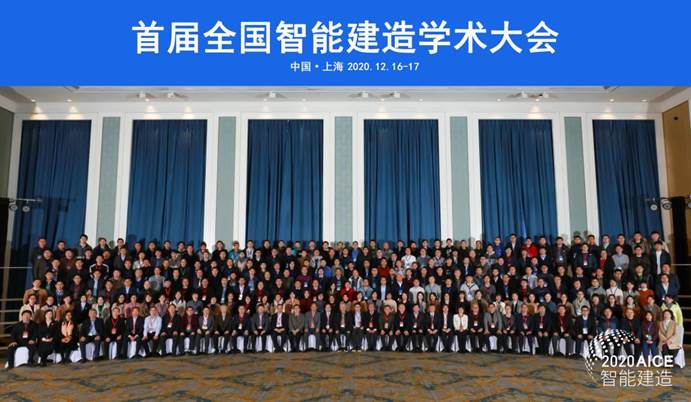
Group photo of participants
Written by the University News Center
and College of Civil Engineering
Photo by ZHOU You
Source: https://news.tongji.edu.cn/info/1002/76135.htm